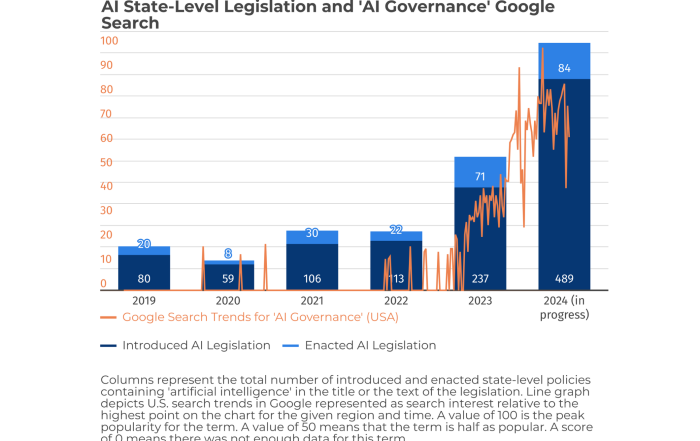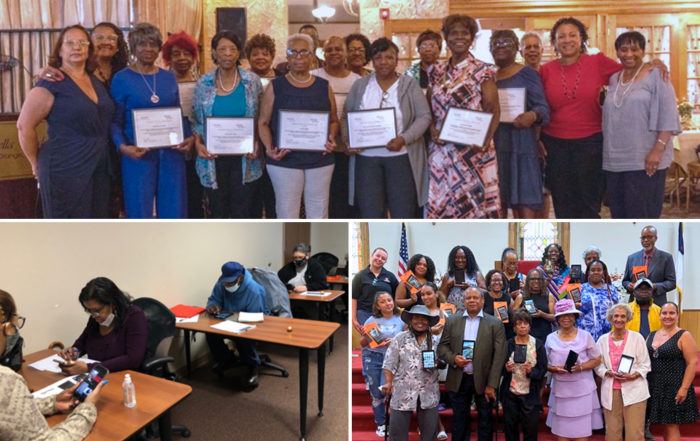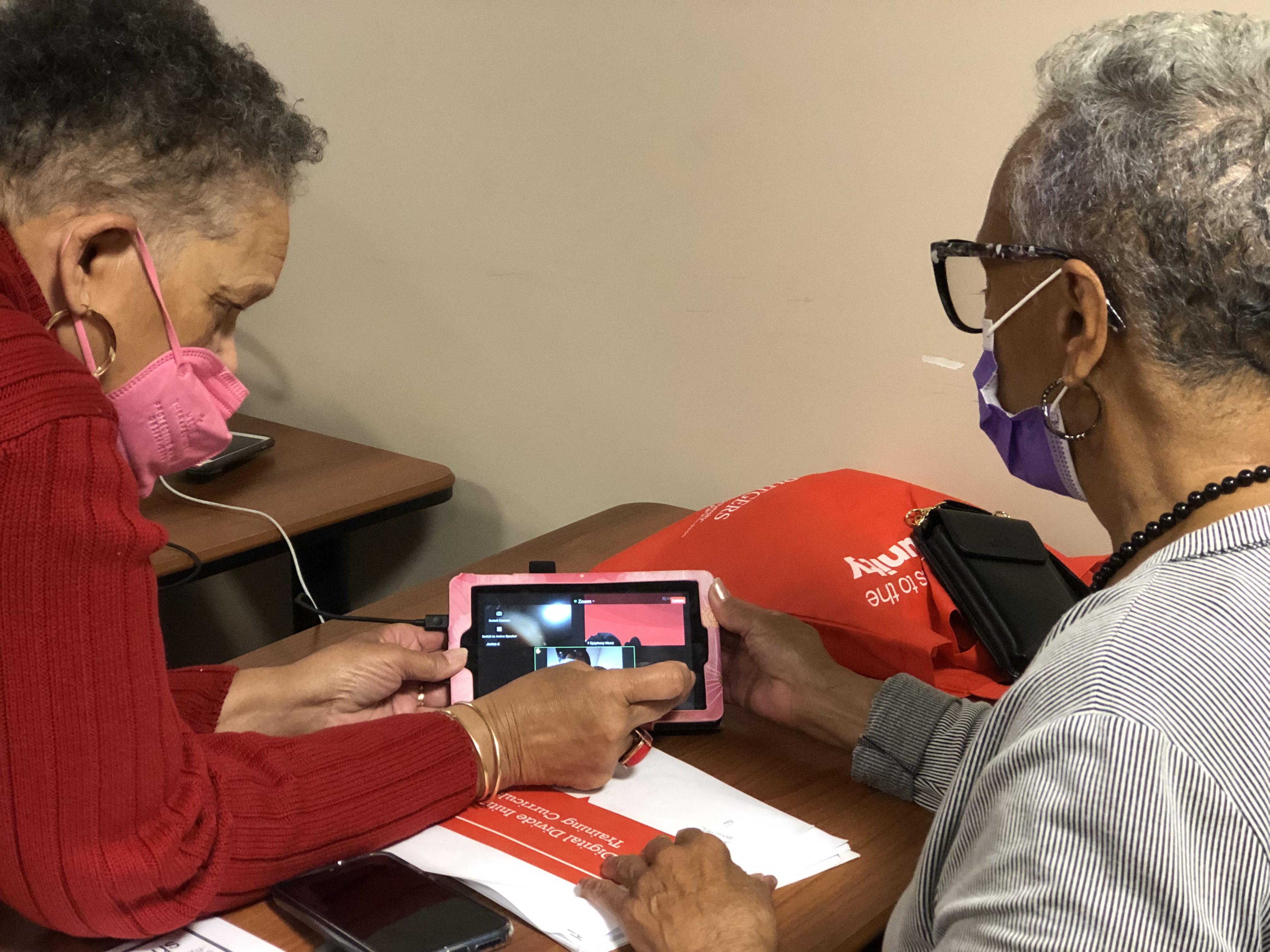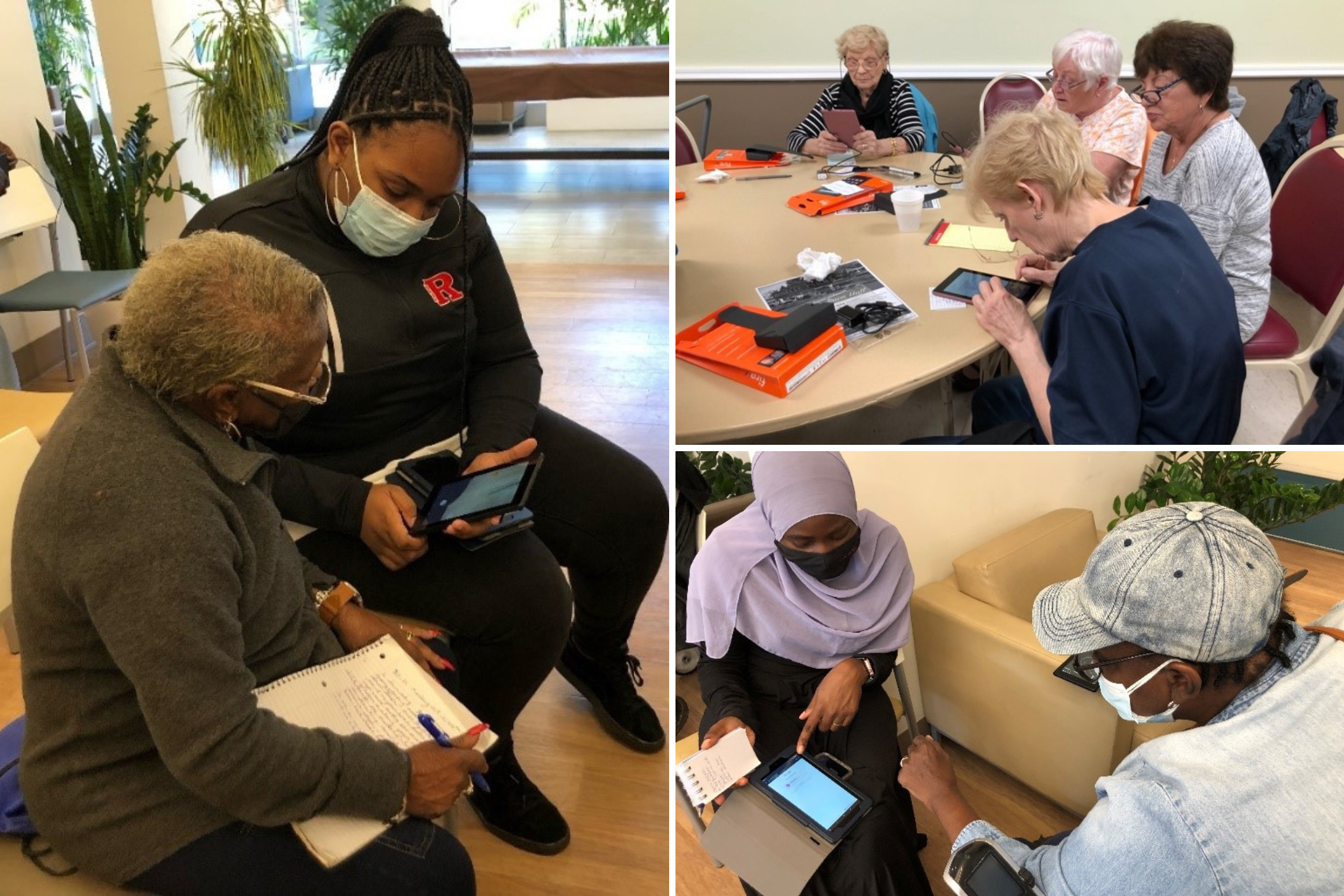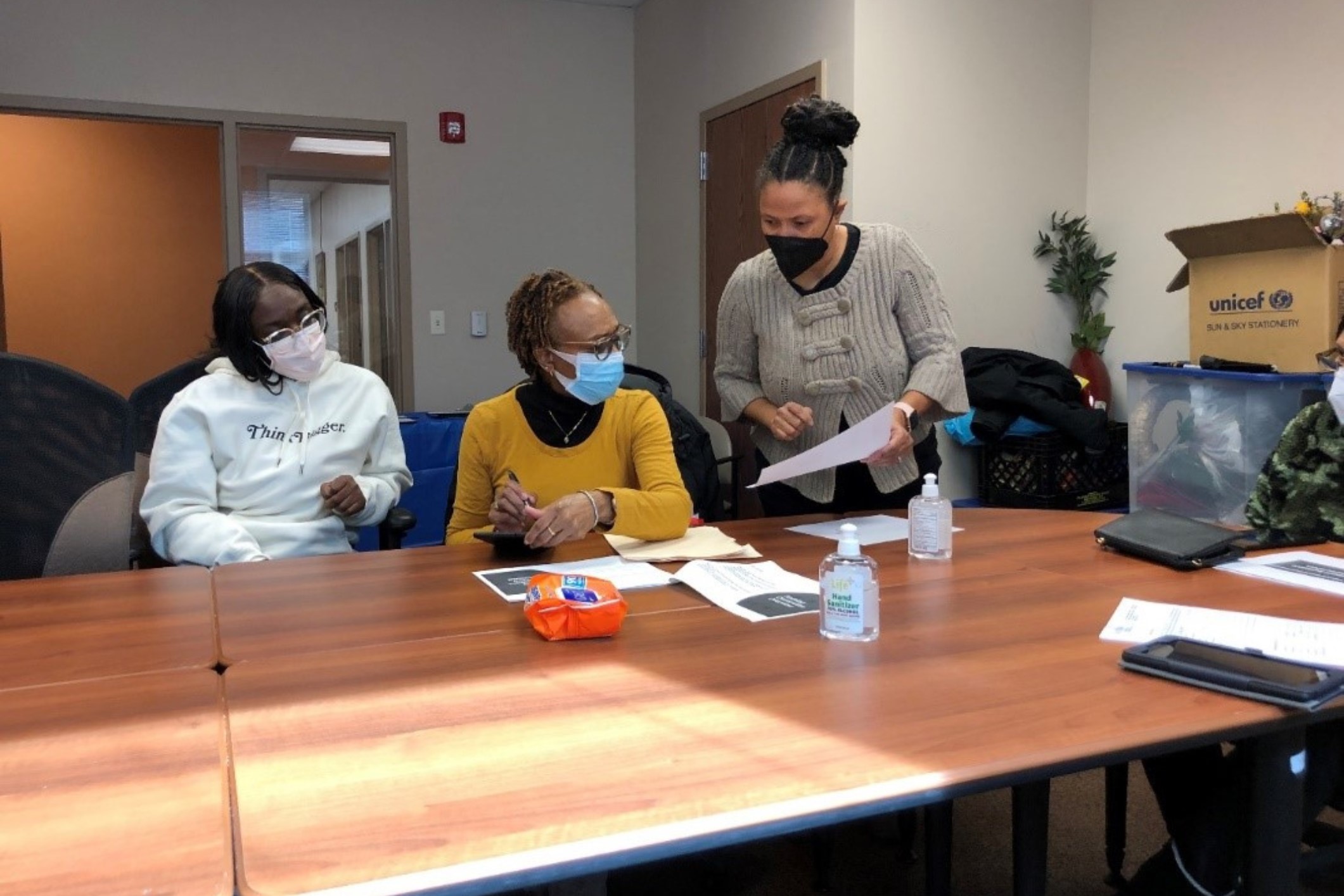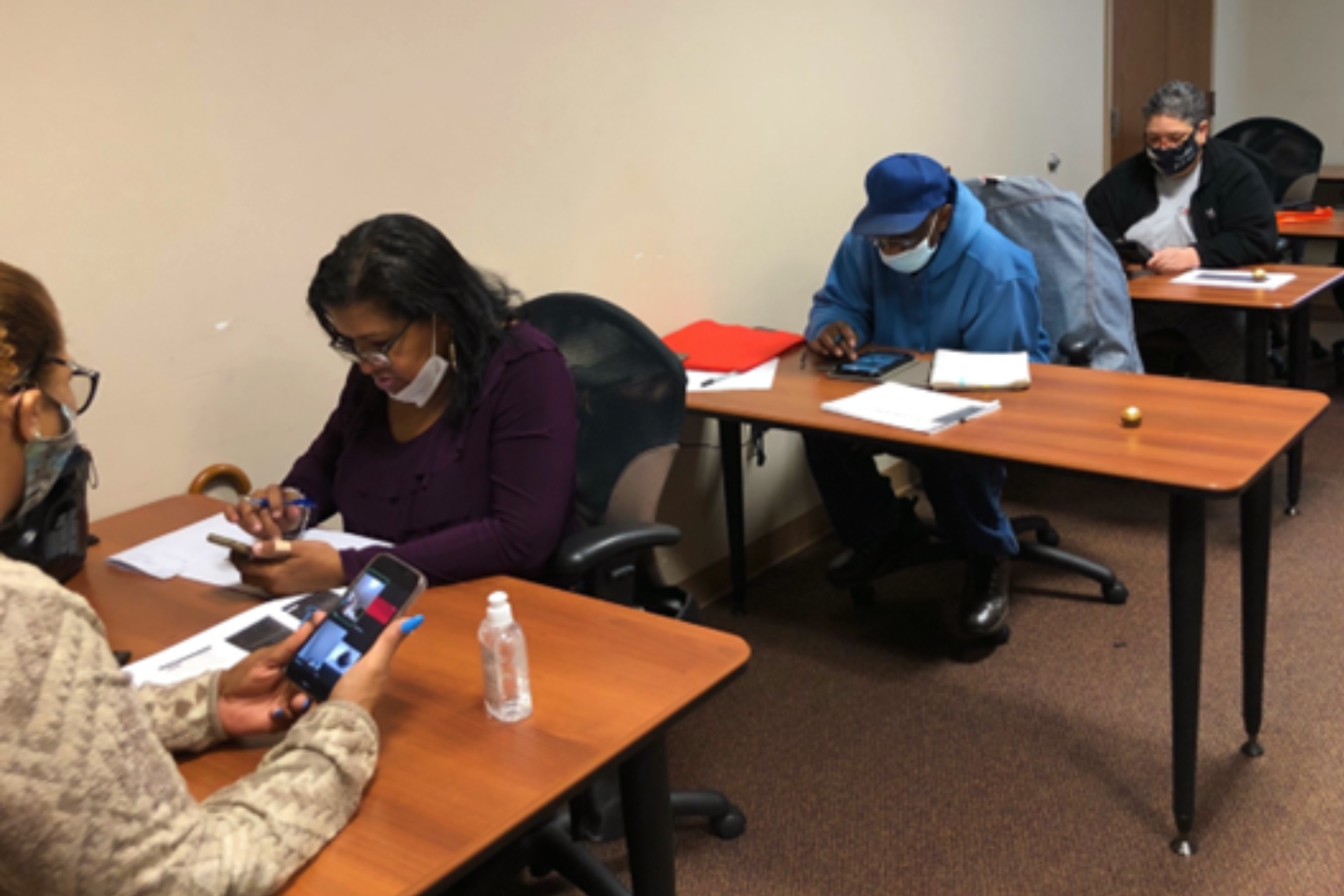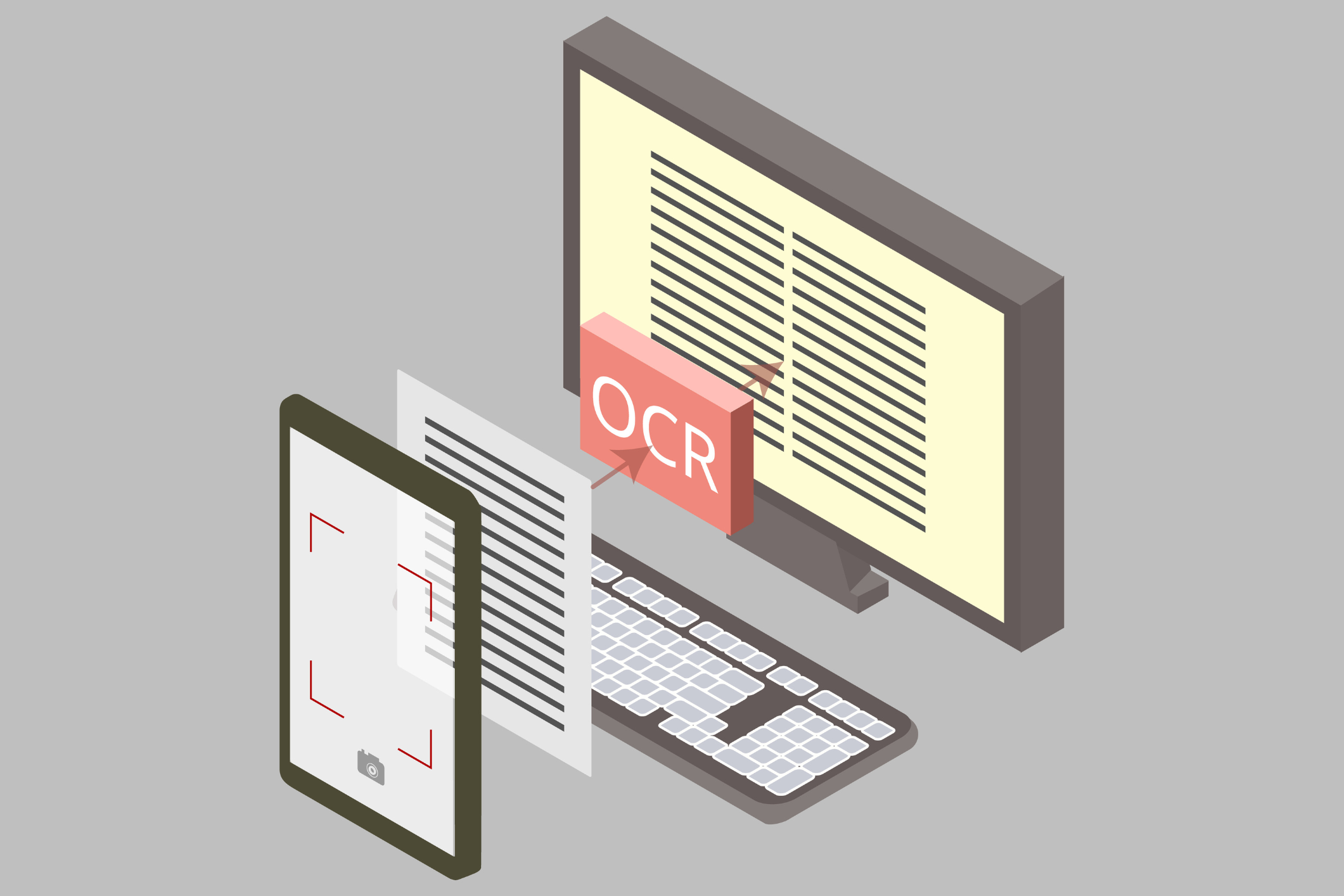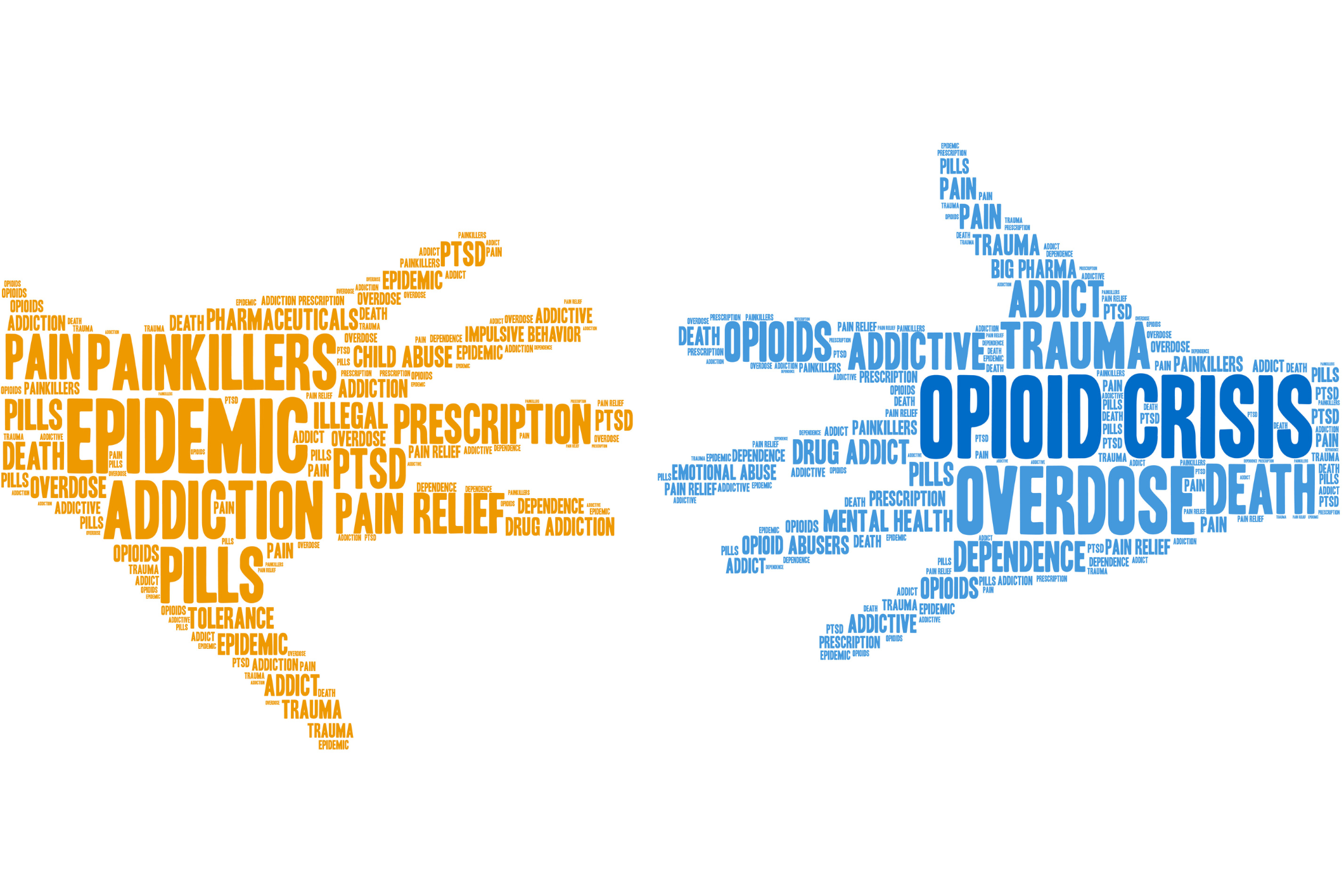Digital/Tech Blogs & Reports
The State AI Preparedness Project
By Ojobo Agbo Eje, Michael Akinwumi, Itzhak Yanovitzky, and Kristoffer Shields Artificial intelligence (AI) is transforming various sectors of the economy across the world, from health, transportation, and finance to the workforce, education, and [...]
Insights from an Audit of SNAP Websites’ Chatbot Services
By Yonaira M. Rivera & Vivek Singh As the public sector continues to adopt chatbots to assist individuals in acquiring information about important health and government services, multilingual access is key to fostering equitable [...]
The Importance of Language Equity in Chatbot Responses for Health and Government Services: A Policy Perspective in New Jersey
By Yonaira Rivera and Vivek Singh In an increasingly digital world, chatbots have become essential tools for delivering health and government services. These trends are only expected to increase in the coming years. However, [...]
Computing on the Inside: Building a Team to Meet the Challenge
By Ben Justice, Ra’Zulu Ukawabutu, and Tommie Willis Imagine never accessing the internet, using today’s technologically advanced phones, being denied access to the information highway or simply being able to search for basic information on [...]
Using AI to Gather Feedback on New Jersey’s Solar Energy Program
By Sania Murtuza, Tai Vu, & Yao Sun, Ph.D This research project evaluates the effectiveness of New Jersey’s solar program and its impact on energy justice, focusing on community engagement. The project seeks to inform the development of solar programs, particularly in low-income areas, by leveraging AI analysis and Tableau to visualize solar access across New Jersey cities such as Jersey City, Newark, and Trenton.
Role of State Legislators with STEM Backgrounds in Advancing Evidence-Informed AI Legislation in U.S. States
By Anna M. Dulencin and Itzhak Yanovitzky Scientists and non-scientists alike have been surprised by the pace at which artificial intelligence (AI) is penetrating all aspects of life and society. Interest in the potential applications [...]
Report Release: Linking Broadband Availability and Education to Digital Skills
By Gregory Porumbescu, Canyu Gao, and Mattia Caldarulo. The widespread adoption of hybrid work models and the emergence of new information technology solutions are emphasizing the need for individuals to develop internet skills [...]
Computing on the Inside: Addressing Technology Education within the Prison System
By Benjamin Justice. Despite being a progressive state with regard to carceral reform and support of education, New Jersey is far behind much of the country when it comes to integrating computer technology [...]
Examining Low-Income Community Solar Program and Energy Justice in New Jersey: An AI-Based Crowdsourcing Study
By Sania Murtuza, Tai Vu, & Yao Sun, Ph.D. With the intention of developing an interactive map for Jersey City, Newark, and Trenton, the research team first obtained zip code data for New Jersey from an online dataset [...]
Report Release: Digital Skills for Accessing Local Government Services
By Vishal Trehan, Stephanie Walsh, Gregory Porumbescu, and Andrea Hetling. Digital skills are increasingly essential for citizens to access and utilize online government services effectively. However, there are also reports of disparities in digital skill levels [...]
Report Release: Can Reducing Learning Costs Improve Public Opinion of Means-Tested Benefit Programs?
By Gregory Porumbescu, Stephanie Walsh, and Andrea Hetling. Means-tested public benefit programs, such as SNAP, are intricate and subject to a large number of rules and eligibility requirements. The high learning costs associated with these programs [...]
Report Release: Senior Connect: A Community-Engaged Approach to Promote Digital Equity for Older Adults
By Diane Hill, Ph.D., Donita Devance, MCRP, and Epiphany Munz, B.A. The COVID-19 pandemic changed the way that we communicate and interact as a society. Importantly, it highlighted the need for digital literacy [...]
Report Release: Resilience Through Functionality: Outcome-Driven Quantification Approach with Stakeholders-Based Calibration
By Michel C. Boufadel, Ph.D., P.E., Firas Gerges, Ph.D., Hani Nassif, Ph.D., P.E. In the face of escalating challenges posed by climate change and rapid urbanization, community resilience is of paramount importance. Quantifying resilience is a crucial step in identifying vulnerabilities [...]
Gathering Insights for a Resilient New Jersey
By Firas Gerges (Princeton), Michel Boufadel (NJIT), Hani Nassif (Rutgers). Resilience is a critical aspect of building sustainable and thriving communities, especially in the face of increasing climate change impacts. As part of ongoing efforts to enhance community resilience [...]
Digital Governance and the Power of Big Data: Transforming Government in the Digital Age
By Tarun Reddy Arasu The continued growth in the use of technology by governments is reshaping public administration and redefining how governments interact with citizens, businesses, as well as with other governments. As a result, digital government [...]
Internet Skills and Perceptions of E-Government Remain Steady in the Face of Greater Economic Hardship
By Grace Maruska. E-government offers new, innovative ways to help connect individuals with public services. Navigating our post-pandemic world, however, requires deeper understanding of how various factors [...]
Examining Low-Income Community Solar Program and Energy Justice in New Jersey: An AI-based Crowdsourcing Study
By Yao Sun. The 2019 New Jersey Energy Master Plan: Pathway to 2050 mentioned that the state’s Clean Energy Act commitments include, “Developing a community solar program that allows more state residents to benefit from solar energy [...]
Digital Technologies Might Not Necessarily Reduce Cognitive Bias and Inequality
By Canyu Gao Human decision-making is complex and shaped by a variety of factors that sometimes result in ostensibly irrational behavior. Despite significant progress in documenting factors that systematically bias decision-making, much less is known [...]
Report Release: The Relationship Between New Jerseyans’ Digital Literacy, Perceptions of E-Government, & Trust in the State Government
By Seulki Lee-Geiller and Abigail Alcala. Public trust in government is crucial for a functioning democratic society as it signifies a belief that government has the right to govern and make decisions on behalf of the population [...]
Report Release: First, Do No Harm: Algorithms, AI, and Digital Product Liability
By Marc Pfeiffer. The relatively recent introduction of publicly accessible artificial intelligence driven chatbots (e.g., Bard, Bing, ChatGPT, Claude) have focused public attention on the broader individual and societal harms that can result from algorithms [...]
How Can Digital Credentialing in the Safety Net Meet the Needs of Domestic Violence Survivors?
By Andrea Hetling and Abigail Alcala. Administrative burdens are the costs and barriers individuals face when accessing government services. Such burdens are one reason why low-income families, who often need the most support from public sources [...]
Growing Cybersecurity Concerns for Telehealth Services
By Heather Butler and Soumitra Bhuyan. Healthcare organizations are increasingly vulnerable to cybersecurity breaches, which put patients’ safety, privacy, and financial stability at risk. Statistics have shown that from 2014 to 2022, 14,655 data breaches were reported in the United States [...]
Validating the Impact of a Community-Engaged Approach on Persistence with Digital Technology Among Older Adults
By Epiphany Munz, Donita Devance, and Diane Hill, Ph.D. The Office of University-Community Partnerships/Center for Health Equity and Community Engagement (OUCP/CHECE) and Advocates for Healthy Living Initiative (AHLI) approach to keep older adults engaged and [...]
Satisfaction with Telehealth Among Adults with Chronic Disease
By Betia Zeng Chronic diseases are the leading causes of death and disability in the U.S., accounting for over 1.7 million deaths annually. The total cost of chronic disease totals $3.7 trillion annually, including healthcare costs and lost economic productivity [...]
Telehealth May Worsen Physician Burnout: How to Avoid It
By Aakanksha Deoli and Esther Martinez. Telehealth has been found to increase healthcare access, especially among vulnerable populations. During the pandemic, it ensured continuity of care while limiting exposure and kept mild cases outside of the hospital [...]
Telehealth for Cancer Care: Opportunities and Challenges
By Meenal Gaekwad, Heather Butler, and Soumitra Bhuyan. The COVID-19 pandemic resulted in a significant disruption in the healthcare system in the United States, which has increased the demand for telecommunication and technology [...]
Malpractice Risks with Telehealth: The Do’s and Don’ts
By Norelle Saada and Aakanksha Deoli Telehealth gained popularity during the pandemic as virtual visits became a necessity to limit exposure. It soon grew exponentially and reached a record high, where telehealth utilization increased by [...]
Insights on Ageism, Health Care, and the Digital Divide
By Epiphany Munz, Donita Devance, and Diane Hill, Ph.D. The World Health Organization (WHO) published the Global report on ageism to call attention to the discrimination that older adults face, along with recommendations for a [...]
Report Release: Using Technology to Reduce SNAP Learning Costs: Lessons from a Survey Experiment
By Stephanie Walsh, Ph.D. Interactions with government processes, whether to renew a driver’s license or apply for public assistance, commonly include frictions referred to as administrative burdens [...]
Digital Divide in New Jersey
By Tarun Reddy Arasu. An increasing disparity is developing between individuals who possess the means and abilities to access and utilize the internet and digital technologies and those who lack such resources and expertise [...]
A Community-based Approach to Increasing Technology Adoption and Proficiency in Older Adults
By Epiphany Munz, Donita Devance, and Dr. Diane Hill. Reports from the Pew Research Center confirm that older adults (65 years and older) continue to lag behind others in adopting technology innovations [...]
Digital Inequity: New Jersey State Digital Literacy Initiative
By Diego Gudino-Martinez & Leonor Camarena, Ph.D. (Indiana University). It is safe to say that COVID-19 has both illustrated and influenced the dependence the United States educational system has on technology. Existing education inequalities were worsened by a rapid shift towards virtual learning that occurred during the COVID-19 pandemic's beginnings [...]
Can Telemedicine Bridge the Health Equity Gap in the Latinx Population?
By C. Sophia Carvajal and Aakanksha Deoli. The rapid growth of telemedicine during the COVID-19 pandemic was instrumental in ensuring continued healthcare access through the virtual delivery of healthcare services [...]
Report Release: Garden State Open Data Index
By Jim Samuel. Open data and artificial intelligence (AI) are vital for future value creation. The value of aligning open data with AI development and deployment requirements has been elaborated upon in the Garden State Open Data Index (GSODI) 2023 report [...]
Perkins Act: A Key Component to Bringing Everyone into the Digital Age
By Abigail Alcala. The Perkins Act, or its most recent iteration, which went into effect in 2019, called Strengthening Career and Technical Education in the 21st Century, is facing the end of its run in the coming year of 2024 [...]
Removing Technology Barriers to Address Health Equity Among Older Adults
By Donita Devance, Dr. Diane Hill, and Epiphany Munz. COVID-19 changed the way we communicate and interact globally, while underscoring deep inequities in access to the internet and digital technology, notably among urban-dwelling older adults on fixed low-incomes [...]
Report Release: Enhancing the Resilience of New Jersey Communities Using ARez
By Michel C. Boufadel, Ph.D., New Jersey Institute of Technology; Firas Gerges, Ph.D., Princeton University; and Hani Nassif, Ph.D., Rutgers University – New Brunswick. The New Jersey State Policy Lab has released a new report in collaboration with researchers [...]
Introducing the New Jersey MOD IV Historical Database
By Marc Pfeiffer and Lucas Marxen The NJ MOD IV Historical Database is an online, searchable database of New Jersey MOD IV parcel information data sets from 1989 to 2022. Providing land parcel and property [...]
Utilizing Technology to Facilitate Citizen-Government Interactions
by Mauricio Astudillo Rodas Public organizations are expected to improve people's lives by correctly delivering goods and services. These organizations must be transparent and accountable to different actors because constituents expect good use of their [...]
Smart OCR – Advancing the Use of Artificial Intelligence with Open Data
By Parth Jain, Abhinay Mannepalli, Raj Parikh, and Jim Samuel Optical character recognition (OCR) is growing at a projected compounded annual growth rate (CAGR) of 16%, and is expected to have a value of 39.7 billion USD by 2030 [...]
Digital Literacy, Telehealth Equity, and Healthcare Access are Interrelated: Here is How
By Betia Zeng and Aakanksha Deoli The growth and expansion of telehealth services have been well documented since the start of the COVID-19 pandemic. Many patients opted to use telehealth to alleviate transportation, time, and convenience barriers. While telehealth [...]
APPAM Fall 2022 Conference: SNAP Administrative Burdens Presentation
By Stephanie Walsh In the context of governmental services, administrative burdens refer to the costs and barriers experienced by individuals. When burdens are high, the costs associated with benefit of public goods or services hinder [...]
The Fallacy of Data Aggregation and Asian Americans in Research
By Amanda Hinton. In the United States, Asian Americans are the fastest-growing racial/ethnic group and are expected to become the largest immigrant group by 2055 [...]
Modernization of the Public Sector: Evaluating Technology and Teleworking Initiatives in New Jersey State Agencies
By Leonor Camarena, Ph.D. Modernizing the Public Sector Workforce In January 2022, Gallup released a list of seven workplace insights and takeaways from employees following the height of the pandemic during 2021. The key themes [...]
Artificial Intelligence and Open Data for Public Good: Implications for Public Policy
By Nishitha Chidipothu, Snigdha Mishra, Shiya John and Jim Samuel “Data has the power to revolutionize and disrupt the way societies are governed” - Rikkus Duus and Mike Cooray Artificial Intelligence (AI), adaptive AI technologies, and [...]
Using the Community Intrinsic Resilience Index to Tackle Energy Equity and Budget Deficit in New Jersey
By Firas Gerges, Michel Boufadel, and Hani Nassif. The Community Intrinsic Resilience Index (CIRI) captures the intrinsic (i.e., not relative) resilience level of critical community sectors, allowing practitioners and policymakers to make resilience-informed plans and strategies. [...]
Intelligent Help for the Opioid Crisis Lifecycle: The Need for an Artificial Intelligence & Informatics-Based Strategy to Address the Opioid Crisis
By Shiya John, Sri Krishna Kaashyap Madabhushi, Nishitha Chidipothu, Jim Samuel. The opioid crisis is affecting all levels of American society regardless of class, ethnicity, gender, or career [...]
A Second Pandemic: Is telehealth a solution to the mental health crisis in the post-pandemic era?
by Heather Butler and Aakanksha Deoli The advent of the COVID-19 pandemic engendered a precarious environment that significantly exacerbated existing mental health disorders and triggered new ones. According to Mental Health America, roughly one in [...]
Broadband Connection Access: An Essential Social Determinant of Health in the Digital Era
by Edgar Romero and Anita Franzione Fueled by the COVID-19 pandemic, telehealth services and virtual care rapidly expanded and allowed health care providers to continue delivering patient care. However, it is important to address the [...]
Expanding telework beyond pandemics: Potential benefits and challenges for the New Jersey Telework Pilot Program
by Jinah Yoo (PhD student), Leonor Camarena, PhD, and Federica Fusi, PhD The growing demands for workplace flexibility coupled with technological advancements have made telework a key element of flexible work arrangements with public organizations. [...]
Community Intrinsic Resilience Index (CIRI), a Simple GIS Tool for Decision Making
by Michel Boufadel, Firas Gerges, and Hani Nassif Resilience is the capacity to endure and recover following a disaster. Enhancing the resilience of communities has been recognized as a major policy decision that brings together [...]
State CIOs Prioritize Digital Equity After Pandemic
by Jessica Cruz Angela Siefer, founder and executive director of the Ohio-based National Digital Inclusion Alliance (NDIA), has done digital equity work dating back to the ’90s. Up until 2019, Siefer was encountering many public [...]
Social Media and Individuals’ Environment-Friendly Actions
by Vishal Trehan Climate change is one of the wicked problems of our times. It is well established that human activity is the primary cause for drastic changes in the climate over the last seventy [...]
Telehealth Use among Medicare Population during COVID-19: Advancements in Accessibility vs Challenges in Utilization
By Heather Butler and Aakanksha Deoli Telehealth use in the United States has skyrocketed among healthcare providers and patients since the advent of the COVID-19 pandemic. Between 2019 and 2020, the number of telehealth visits [...]
Catalyzing the Information Economy: Moving Towards Strategic Expansions of Open Data-Driven Value Creation
by Shiya John, Snigdha Mishra and Jim Samuel Open data is expected to influence trillions of dollars in global value creation by 2030, as projected by McKinsey Global Institute: “The boost to the economy from [...]
Challenges with Telehealth Adoption in Light of a Global Pandemic
Rajisha Shah, Aakanksha Deoli, MHA The COVID-19 pandemic led to a significant increase in telehealth volume and revolutionized healthcare regulatory guidelines for its use. Telehealth expanded access to care, especially during the pandemic, and made [...]
Using Creative Informatics and Artificial Intelligence to Address the Drug Addiction Crisis in New Jersey
Shiya John, Gavin Rozzi and Jim Samuel New Jersey has a persistent substance addiction problem which must be viewed in the context of laws, policies, and initiatives implemented to address it. The most recent numbers [...]
Digital Services and Administrative Burdens
By Jessica Cruz and Vishal Trehan Why isn’t the participation rate for the government’s welfare programs at 100%? Why do only 82% of those eligible under the Supplemental Nutrition Assistance Program (SNAP) receive benefits? Given [...]
From Emergency to Routine: Evaluating the Implementation of Technology for Government after COVID-19
Leonor Camarena, PhD and Federica Fusi, PhD New Jersey was one of the first states to recognize the significance that technological advancements can have on the workforce and larger community. In October 2018, Governor Murphy [...]
Use of Telehealth Among Essential Workers During COVID-19
Mriga Bansal and Naren Gopal Since December 2020, coronavirus disease (COVID-19), caused by severe acute respiratory syndrome coronavirus 2 (SARS-CoV-2), has been a significant global health concern. In February 2020, the Centers for Disease Control [...]
Predictive Algorithms in the Public Sector
Vishal Trehan Some scholars, looking broadly at the impact of information and communications technologies (ICTs) on public administration, have argued that the use of ICT has led to structural changes in some public agencies, with [...]
Is Telehealth Making Healthcare More Accessible For the LGBTQ+ Community?
Domonique Noel Across the globe, the COVID-19 pandemic has made a drastic impact on the lives of LGBTQ+[1] people in several unforeseen ways. One of those ways is in healthcare delivery, as an increasing number [...]
Bridging the Digital Divide in Native American Communities
Jennifer Spiegel The COVID-19 pandemic has emphasized the importance of online connectivity in society today. Yet there is still a digital divide as inequitable access to broadband services prevents underserved communities from benefiting from vital [...]
Digital Equity for K-12 Students
By Stephanie Holcomb, Jessica Cruz-Nagoski, Andrea Hetling, Gregory Porumbescu, Vishal Trehan The COVID-19 pandemic highlighted the important role efforts to promote digital access, literacy, and skills play in promoting a more equitable society. This [...]
Applying for Public Benefits Using a Smart Phone: Trends and Challenges
Jessica Cruz More Americans have access to the internet than ever before, but mode of access may vary depending on who you are and where you live. According to a survey done by the [...]
Digital equity – what it is, how it’s defined in the field, how it’s related to public policy, and why it matters in NJ
Jessica Cruz As technology advances and COVID-19 continues to force activities to be virtual, there is an increasing divide between those who can and cannot go online. The people who are most affected by [...]






